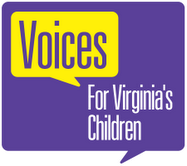Third Annual Racial Truth and Reconciliation Week Seeks Inspiration from Youth Changemakers
Voices for Virginia’s Children to host more than 1,000 Virginians at virtual racial justice conference
RICHMOND — Voices for Virginia’s Children will host its third annual celebration of Racial Truth and Reconciliation Week (RTRW), August 22-27. The week-long, free event offers online connections and professional development opportunities. Virtual sessions throughout the week will encourage participants to reflect on their personal growth and prompt organizational changes to promote diversity, equity, inclusion, and justice. The week will culminate with an in-person Unity Walk along Monument Avenue in Richmond on Saturday, August 27.
“This year’s conference will focus on the incredible leadership by young changemakers in Virginia,” said Kristin Lennox, Advocacy and Engagement Manager at Voices for Virginia’s Children. “Our aim is to enlighten and inspire young people, parents, and professionals to learn how to make ‘good trouble’ as the late Rep. John Lewis charged us to do. With an impressive lineup of speakers representing an array of work being done in Virginia, we hope RTRW will lead to more diverse, welcoming, and supportive communities for youth to grow and thrive.”
There are more than 2.6 million children and young adults in Virginia, with a large percentage increase in racial and ethnic diversity in the last decade. The mission of RTRW is to empower the voices and experiences of marginalized communities to promote healing, reconciliation, and justice. Since its inception in 2020, more than 1,000 attendees have come together to learn and build healthy communities for Virginia’s children and families. So far, more than 1,300 people are registered to attend the free conference this year.
More than two dozen partnering organizations and professionals across the state will offer virtual sessions throughout the week centered on the following themes:
- Good Trouble: Necessary Trouble to Enact Change – Foundational workshops focused on keeping the momentum for racial justice.
- Voices of Virginia’s Future: Highlighting Young Advocates & Activists – Raising social justice advocates for parents, youth activism, defining allyship, and a conversation on reproductive justice.
- Organizational Change: Reckoning & Reconciling Our Truth – Internal decision-making, community engagement, organizational culture, and a pledge to end racism.
Participating organizations include Birth in Color, Children’s Home Society, Child and Family Network Centers, Parenting Culture, TheMentalHealthDiaries, Virginia Community Voice, and leaders working in mental health, healing-centered engagement, and DEI and Belonging.
“We created a space for parents and youth to hear from young changemakers on how to parent activists and be an advocate amongst their peers,” said Lennox. “And there’s room for organizations to focus on their diversity, equity, and inclusion (DEI) initiatives, including funding inequities and the emotional labor of justice work.”
“It is so important during this time to keep up our energy for seeking changes to policies and systems,” noted Allison Gilbreath, Policy and Programs Director at Voices for Virginia’s Children. “The sessions offered through Racial Truth and Reconciliation Virginia will continue to propel advocates wanting to make changes in their schools, communities, businesses, and organizations.”
Gilbreath added, “Anyone interested in learning how to support positive experiences for children and youth and foster community change is welcome!”
Learn more and register to attend all online events at vakids.org/rtrwconference.



